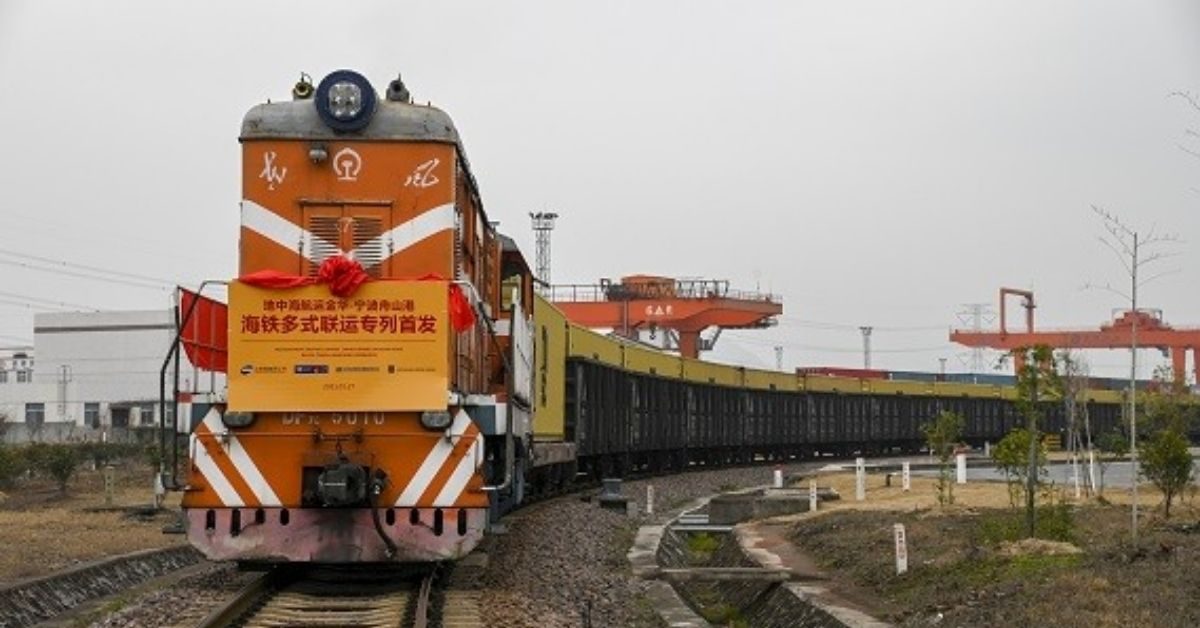Mediterranean Shipping Company (MSC) and Hapag-Lloyd have announced the launch of two separate block train services that will provide shippers with on time deliveries, as driver shortages, particularly in China, impact service reliability.
An MSC block train composed of 84TEU made its way from Jinhua to the Ningbo-Zhoushan port on 27 January, marking the first special block train from Jinhua to Ningbo by the Swiss-based carrier.
MSC has been providing rail-sea services for customers exporting goods from Jinhua via Ningbo since 2016, but this is the first time that they have offered a dedicated block train service between the two locations.
“Demand for the rail service tends to increase prior to the Chinese New Year as there is higher demand to ship cargo out before the holidays,” said MSC in its statement, adding, “There also tends to be a shortage of truckers and increase in trucking fees during the New Year period.”
This year, the driver shortages have been exacerbated and prolonged by the Covid-19 pandemic and the requirements for those travelling in China for the New Year holiday celebrations, to isolate for 14 days, as they head back to their villages, and again when before they return to work.
MSC said that its customers using its rail service can take advantage of a fixed transit time without worries about delays due to road congestion or traffic accidents. “The railway directly links to the terminal, providing a seamless connection to MSC vessels, which then ship the goods to worldwide destinations,” noted the world’s second-largest shipping line.
In addition, Hapag-Lloyd has introduced three block train connections in Ukraine from January. The trains complement the company’s current domestic service from the port city of Odessa to the main Ukrainian industrial locations of Kharkiv (UAHRK), Dnipro (UADNK) and Kiev (UAIEV).
The rail service will be provided by NUNIT, the intermodal company of TransInvestService (TIS), the largest private terminal operator in Ukraine. The partnership will enable Hapag-Lloyd to offer three weekly block trains, made up of 30 to 45 platforms each, as well as to use the depots and facilities of TIS for the on-site storage and stowage of the cargo.
“Our customers now benefit from improved reliability in deliveries as transit times are significantly shorter and trains reach destinations without stops,” commented Hapag-Lloyd, which said it is aiming to offer tailor-made intermodal solutions that best fit customers´ specific requirements.
Source: Container News






